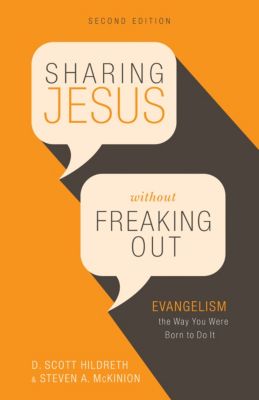This global pandemic requires us all to approach evangelism differently. Remember Easter? Normally we would invite friends and neighbors to church to let the professional pastors tell them about Jesus. Not this year!
Now, we approach Christmas, and the same reality will be true. Christmas musicals, live nativities, Christmas Eve communion services, and many traditional opportunities cannot happen as they have in the past. And, for those who host seasonal events, we know they will not attract large numbers of seekers and unbelievers this year.
Think about this. In this moment, when the message of Christmas is most needed—the Savior entered a broken world in order to glorify God and bring peace on Earth—circumstances hinder our efforts to share it. What should we do? Should we just pack it in this year and not tell others about the gospel? Should we just accept these challenges as God’s secret message that He wants us to focus on ourselves this Christmas?
Of course not!
People need to hear about Jesus today. This Christmas season will be like no other in recent memory. For many, loneliness, fear, and frustration will replace the lights, carols, and garland this year. If we ever needed the message of Christmas, it’s this year.
The First Christmas Witnesses
Our struggle will be how to share the reason for the season when the season seems to be upside down. As I thought about this, I was drawn to the very first Christmas witnesses, the shepherds. These men were the first to hear about Jesus’ birth, and they were also the first to carry the message to others. What can we learn from Luke’s description of these original evangelists?
1. They were normal and untrained.
In years past, you and I have been able to rely on professionals to do the work of evangelism. Formal Christmas events and well-organized services allowed us to invite and then sit back. This year, God has placed the opportunity for evangelism squarely in our laps.
It may be intimidating. We may not feel up to the task. But consider the shepherds in Luke 2:8. There’s nothing formal or exceptional about these men. Their only credentials for being evangelists was that they received a commission to go see the baby. After seeing Jesus, they decided to report the message “and all who heard it were amazed” (Luke 2:18).
2. They told what they knew, and it was enough.
I know it’s intimidating to think about the questions people may ask. We’re all afraid of saying things wrong. Fancy musicals and creative dramas remove the pressure of coming up with a helpful presentation. This year, things rest on us, and that’s a little frightening.
Think about the shepherds. They give us great evangelistic advice: “Let’s … see what has happened, which the Lord has made known to us” (Luke 2:15).
Has Jesus made a difference in your life? Has God taught you something about Himself or His Word in this pandemic season? If so, you are just like the shepherds—you have seen and heard; now you can tell. Don’t let the pressure of what you don’t know keep you from sharing what you do know.
3. Their lives were full of gratitude and worship.
This has been a painful year. Everyone you meet has suffered and is still suffering. We all have good reasons to be pessimistic, complaining, and self-absorbed. These attitudes, however, do not make us stand out from those around us, and they don’t provide a platform for evangelism.
The shepherds seem to have been consumed by the goodness of God and the wonder that He would reveal the birth of His Son to them. I am not asking you to be fake or to pretend like things are easy. Instead, this is a challenge for us to live lives of hope, peace, and joy in a world that is asking if these attitudes are possible.
Remember, the message of Christmas is that God has stepped into this hopeless world and has given us a reason to rest and rejoice. Your friends and family members need to hear this truth, and, this season, you are the one to whom God has entrusted the message and the opportunity to tell.


